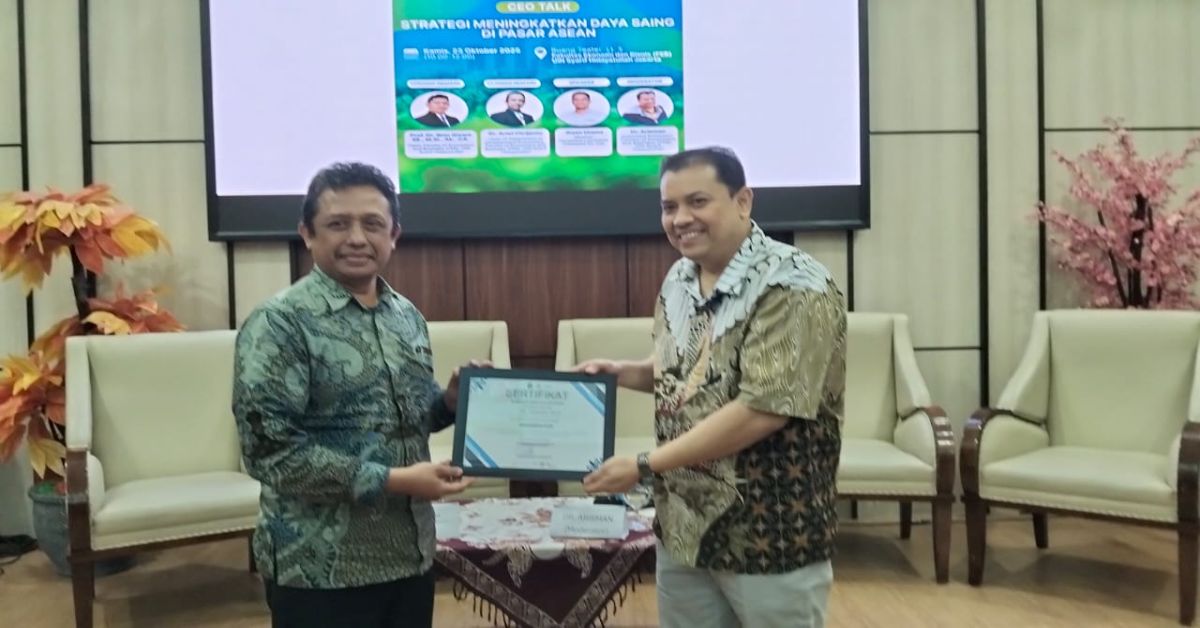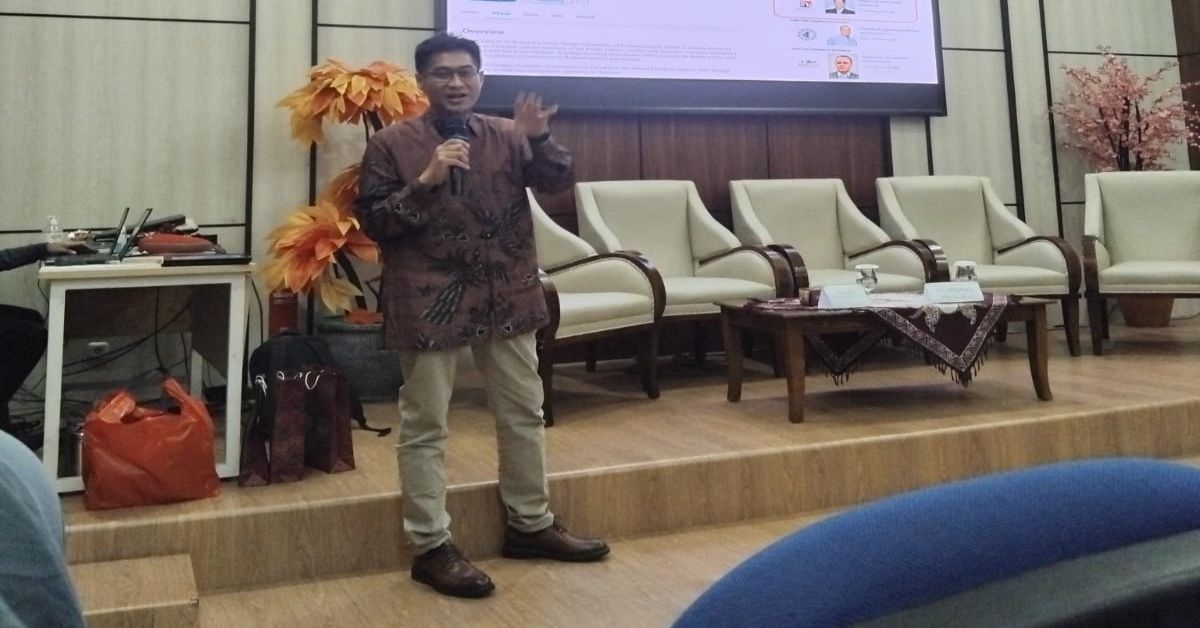Development Economics Study Program Holds CEO Talks with Pertamina Lubricants Thailand
Jakarta, October 23, 2025 — The Development Economics Study Program at the Faculty of Economics and Business, UIN Syarif Hidayatullah Jakarta, held a Practitioner Lecture: Pertamina CEO-TALK with the topic “Strategies for Increasing Competitiveness in the ASEAN Market.” The event featured a guest speaker from Pertamina Lubricants (Thailand) Co. Ltd., Ihsan Utama (Director of Pertamina Lubricants (Thailand) Co. Ltd.), who was moderated by Dr. Arisman (Lecturer at the Faculty of Economics and Business, FEB UIN Syarif Hidayatullah Jakarta). The event was opened by the Dean of FEB, Prof. Dr. Ibnu Qizam, M.Si, accompanied by the Head of the Development Economics Study Program, Arief Fitrijanto, and the secretary, RR. Tini Anggraeni. It was attended by lecturers and students of the development economics study program.
In his presentation, Ihsan Utama explained that Indonesia has great potential in the ASEAN market due to its abundant natural resources, competitive labor force, and vast and strategic domestic market. However, national competitiveness is still hampered by low production efficiency and innovation. Based on 2023 data, Indonesia's exports to ASEAN reached around 18.35% of total national exports. The largest destination countries include Singapore, the Philippines, and Vietnam. The main commodities exported are palm oil, coal, textiles, and industrial processed products. Indonesia's competitiveness remains strong in the primary sector, but there is a need to increase added value through downstreaming. The stability of export values is also influenced by global commodity prices and domestic export policies.
The SME Policy Index: ASEAN 2024 – Enabling Sustainable Growth and Digitalization report shows that small and medium-sized enterprises (SMEs) account for more than 99% of companies in the ASEAN region and play an important role in creating jobs and inclusive economic growth. SMEs also drive technological innovation and contribute to the transition to a greener economy. However, key challenges remain, including high logistics and infrastructure costs, low labor productivity, limited innovation and industrial technology, dependence on raw materials, and uneven product standards and quality.
1. As a form of solution and opportunity to strengthen competitiveness, several strategies are recommended, including:
2. Developing value-added downstream industries;
3. Promoting the digitization of SMEs and exports through ASEAN e-commerce;
4. Improving the certification and branding of local products;
5. Utilizing AFTA to expand markets;
6. Building investment partnerships and adopting modern technology.
This activity confirms that the competitiveness of Indonesian products in ASEAN remains strong in the natural resources and manufacturing sectors. However, to become a major player in the region, Indonesia needs to improve innovation, efficiency, and product added value in order to compete in the global market. (AC)


